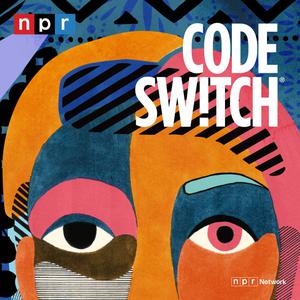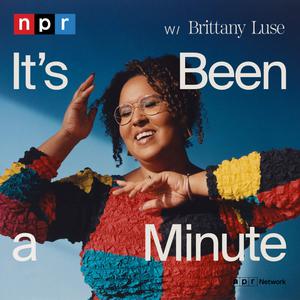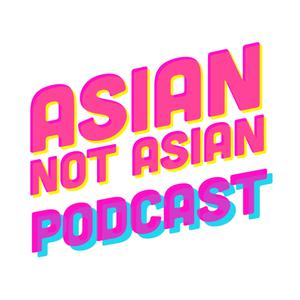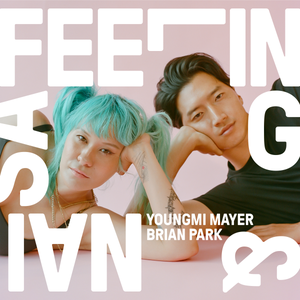
Asian Enough
Los Angeles Times
From the Los Angeles Times, “Asian Enough” is a podcast about being Asian American -- the joys, the complications and everything in between. In each episode, hosts Jen Yamato, Johana Bhuiyan, Tracy Brown and Suhauna Hussain of the Times invite special guests to share personal stories and unpack identity on their own terms. They explore the vast diaspora across cultures, backgrounds and generations, and try to expand the ways in which being Asian American is defined.
- 1 minute 27 secondsIntroducing: Boiling Point16 January 2025, 11:00 am
- 32 minutes 28 secondsThis Was Foretold
In the final episode of “Foretold,” Paulina makes a career choice and starts figuring out her place in the world. And Paulina and Bobby’s custody battle culminates in a decision about their daughters’ future.
Check out behind-the-scenes photos and host Faith E. Pinho's reflections on the series.
Read the episode transcript.
Dive deeper: There is no monolithic “Romani American experience,” not even in California — there are a multitude of them. See opinion pieces by Romani writers in conjunction with the "Foretold" podcast at latimes.com/foretold.
6 June 2023, 11:00 am - 44 minutes 6 secondsThe Fallout
Faced with the consequences of her decisions, Paulina grows estranged from her family — but meets Gina, a cousin who left the community decades before. And Paulina turns to her ultimate battle: the fight for her children in court.
Check out more information about this episode.
Read the episode transcript.
Dive deeper: There is no monolithic “Romani American experience,” not even in California — there are a multitude of them. See opinion pieces by Romani writers in conjunction with the "Foretold" podcast here.
30 May 2023, 11:00 am - 38 minutes 19 secondsA Prism
In the beginning, Faith thought Paulina was giving her a hot news tip about psychics and scams. Years of investigation revealed something else.
Check out more information about this episode.
Read the episode transcript.
Dive deeper: “I would not exist if my ancestors had not practiced Drabarimos,” or spiritual medicine, spiritualist and filmmaker George Eli writes. He delves into how he got into his line of work and why his community and heritage have become so misunderstood.
23 May 2023, 11:00 am - 49 minutesYour Laws vs. Our Laws
Now that Paulina has left her family, she has a choice to make: Does she take her custody case through the Romani judicial system? Or does she turn to the American courts, trusting the system she has always been taught to fear?
Check out more information about this episode.
Read the episode transcript.
Dive deeper: There is no monolithic “Romani American experience,” not even in California — there are a multitude of them. See opinion pieces by Romani writers in conjunction with the Foretold podcast here.
16 May 2023, 11:00 am - 47 minutes 24 secondsNew Territories
As a young mother, Paulina grows disillusioned with her home life and yearns for independence and a space she can call her own. Once she opens a new psychic shop, she meets a couple of new clients who give her a peek into their outside world — and there’s no going back.
Check out photos and more information about this episode.
Read the episode transcript.
Dive deeper: There is no monolithic “Romani American experience,” not even in California — there are a multitude of them. Author and activist Nicoleta Bitu shares more on how fighting oppression and patriarchy led her to her own Romani feminism.
9 May 2023, 11:00 am - 45 minutes 4 secondsThe Train Station
Now married, Paulina moves in with Bobby’s family in Orange County and is met with a host of expectations: cooking, cleaning, serving, working at the psychic shop and having children. This kind of family dynamic has helped keep the Romani culture alive across the centuries. But it still catches Paulina by surprise.
Check out photos and more information about this episode.
Read the episode transcript.
Dive deeper: There is no monolithic “Romani American experience,” not even in California — there are a multitude of them. See opinion pieces by Romani writers in conjunction with the Foretold podcast here.
2 May 2023, 11:00 am - 47 minutes 9 secondsBusiness Arrangements
Before Paulina was born, her future seemed predestined: She’d marry her relative and close family friend, Bobby. They were a match written in the stars. And their wedding only augured more good things to come. Or so she thought.
Check out photos and more information about this episode.
Read the episode transcript.
Dive deeper: There is no monolithic “Romani American experience,” not even in California — there are a multitude of them. Author Oksana Marafioti shares her recollections of how arriving in Los Angeles as a teenager led her to celebrate her Romani roots.
25 April 2023, 11:00 am - 41 minutes 59 secondsA Certain Kind of Education
We go back to where it all began: Morro Bay. Paulina shows Faith her hometown, where she recounts a childhood in a tightknit family, vibrant parties and an education cut short.
Check out photos and more information about this episode.
Read the episode transcript.
Dive deeper: There is no monolithic “Romani American experience,” not even in California — there are a multitude of them. Author Oksana Marafioti shares her recollections of how arriving in Los Angeles as a teenager led her to celebrate her Romani roots.
18 April 2023, 11:00 am - 47 minutes 29 secondsThe G-Word
In the fall of 2019, reporter Faith E. Pinho received a tip from Paulina Stevens. Paulina said she had grown up in an insular Romani community in California, where she was raised to be a wife, mother and fortuneteller — until she decided to break away. This opens the door to a story spanning multiple continents, hundreds of years and complex, even metaphysical, realities.
Check out photos and more information about this episode.
Read the episode transcript.
Dive deeper: Our Romani cultural consultant's op-ed describing how her heritage fits into her own life.
11 April 2023, 11:00 am - 3 minutes 34 secondsIntroducing: Foretold
At 12 years old, Paulina Stevens could predict the course of her entire life. Growing up in a traditional Romani family, Paulina was destined to become a wife, mother and fortuneteller. Married at 17 and a mother by 19, Paulina settled into a predetermined life... until she decided to change the course of fate. "Foretold" is a gripping journey of self-discovery as Paulina navigates the consequences of her decision to leave her community and redefine her identity. Taking listeners beyond stereotypes and myths, “Foretold” explores the history and context of Romani culture, and Paulina’s place in it. Follow and listen to “Foretold” at latimes.com/foretold. Coming April 11th.
28 March 2023, 11:00 am - More Episodes? Get the App
Your feedback is valuable to us. Should you encounter any bugs, glitches, lack of functionality or other problems, please email us on [email protected] or join Moon.FM Telegram Group where you can talk directly to the dev team who are happy to answer any queries.
 Code Switch
Code Switch
 It's Been a Minute
It's Been a Minute
 AsianBossGirl
AsianBossGirl
 Asian Not Asian
Asian Not Asian
 The Dave Chang Show
The Dave Chang Show
 Feeling Asian
Feeling Asian